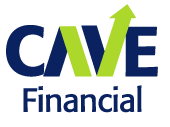Slow and Steady Nest-Egg Building for Your Little Bird
Wed Aug. 21st 2019
Your options for making regular investments on behalf of your kids
From your 18th birthday, if you put money away each month for 10 years, then save no more until you retire, you have 40 more years for that initial nest egg to build on its own interest. This means you contribute less, but end up with more.
Your options for making regular investments on behalf of your kids
Take a guess. If you saved for 30 years or for 10 years, which would give you a bigger total when you're ready to retire?
If you guessed 30, you're wrong — the answer is 10 years. But the catch is, you have to start early. From your 18th birthday, if you put money away each month for 10 years, then save no more until you retire, you have 40 more years for that initial nest egg to build on its own interest. This means you save less, but end up with more.
If you don't start until you're 40, but put that same amount away each month until you retire at 70, you won't have anywhere near the same size nest egg. That's the magic of compounding interest.
What's compounding interest?
Put simply, compounding interest exponentially increases the value of your savings. You place a starting sum in savings, earn interest on it, then earn more interest on the new total.
If you start with $1000 and earn 2% interest annually, you'll have $1020 at the end of the first year. In the second year, that 2% interest takes you up to $1040.20. And in ten years, you'll have $1194.62.
For kids and young people, who have decades until they start thinking about university fees, home ownership or retirement, this quietly accruing interest can be incredibly valuable.
Help your kids earn as they grow
You might have only started saving at 40, but your kids needn't make the same mistake. Establish a small fund on their behalf now and they'll have decades to harness the power of compounding interest.
For example, the real estate landscape is uncertain for first-home buyers, even now. With interest rates likely to rise in the coming years, along with increased regulation of the property market, who knows what challenges young people may face when buying their first home a decade or two decades from now? Give your children a leg up with an established savings fund, and maximise their chances of fulfilling the Kiwi home-ownership dream.
Even if they don't choose to own a home, they may want to use their savings for an OE, tertiary study, to start their own business, or as a means of support as they chase other goals.
Your investment options
Pay off your mortgage
While this might not sound as tangible as putting money aside each month, the reality is that your mortgage is a very large debt – one that could end up meaning you pay double for your home. Putting extra money into your mortgage every month means you reduce the interest paid, and could save you hundreds of thousands of dollars in the long run.
This means when your children are ready to attend university or buy their first car, you may be in a position to pay for it outright, or leverage the substantial capital in your home to do so.
Set up a bank account
While establishing a simple savings account won't offer you a great rate of return, it is a solid, safe option.
A good way to make this strategy work harder is, if your bank will allow you to use savings to offset your mortgage, so you pay less interest as your savings grow. This means you pay less interest in the long run, and you'll be in a better position to financially support your kids, while still ending up with a tidy little nest egg.
Join an investment fund
While saving accounts provide a low but safe return, investment funds are riskier and can return a healthier profit. You could earn as much as 20% in a single year — or lose 20%. However, as parents, it's important to separate your attitude to risk from your kids' financial future.
It's common investment wisdom to take more risk at the beginning of a long investment time frame. This means you needn't worry too much about market downturn as it will inevitably occur within your children's lifetimes, especially if you start investing before they turn 10. By starting early and ensuring they stay in the market for the longest possible term, you will maximise the chances that your children's investments will bounce back from any big market knocks, while reaping the rewards of a riskier fund.
Something to watch out for is sneaky annual fees, which can seem small but end up representing a significant chunk of your investment. It's best to look for an investment with a low annual admin fee.
Invest in Kiwisaver
This government-sponsored scheme is an easy way of investing small amounts in a managed fund, with generally lower fees than privately managed funds. Kiwisaver also comes with some benefits that can really add up, such as employer contributions once your children get into regular employment, and tax-free government contributions.
However, Kiwisaver funds can only be withdrawn to purchase a first home or for retirement, so while the money won't be available if your children want to travel or start a business, there's a higher chance the fund will stay intact and accrue more compound interest.
Buy Bonus Bonds
Bonus Bonds are a great option if you're looking for a fairly safe investment and you only have small amounts to play with. First introduced by the government in 1970 as a way of encouraging New Zealanders to save more, they are now managed by ANZ Investment Services.
You can invest in Bonus Bonds with as little as $20, which will buy 20 bonds valued at $1 each. There are no fees charged, and your bonds have no expiry date. Each month, your bonds go into a draw and you could win prizes from $20 to $1m.
You can feel confident that your money is safe, as the fund is managed very conservatively. You can redeem your bonds at any time, and get back the $1 per bond that you put in. Over time, on average, the fund usually has a lower rate of interest than investing in the bank, but it is still worth making it a small part of your investment portfolio.
Start saving now
Whichever option or combination of options you choose, it's clear that the sooner you start saving for your children, the better off they'll be. By putting away as little as $20 a week from infancy, your children could each have $20,000 saved by the time they're ready for uni, and that's without taking interest into account. Any small savings you start making now have the potential to grow into a foundation for a more secure — and happy — future for your loved ones.

Need our help?
We're here to answer your questions.
service@cavefinancial.co.nz
09 302 7310
1D Roberta Avenue
Glendowie
Auckland 1071
New Zealand


